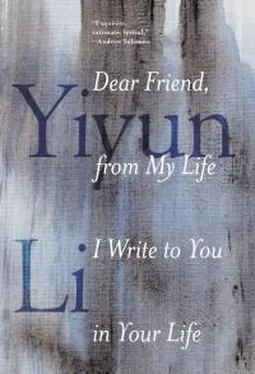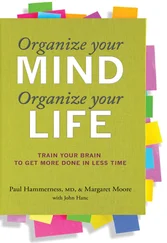In resigning, Stefan gave up belief in measurability—there is no hierarchy in suffering. In the South American letters, he often reminds himself that his position—away from the war and with a place to write—is to be envied. But how do we compare the despair of Stefan Zweig—who attended a carnival in Rio a few days before his death and expressed his “mixed feelings to assist to [ sic ] such fantastic explosion of joy in a time where nearly in the whole world explosions kill people”—to the despair of a fifteen-year-old in China, who, seeing little hope in a life trapped in a village, drank weed killer? Her last days were photographed by the media, from a girl on a stretcher to a body wrapped up in a plastic sheet.
“There is in reality not much to tell as our private life is of no importance now and the public events have enough publicity,” Stefan Zweig wrote on December 31, 1941. To take one’s private suffering into one’s own hands: Is it not a rebellion, too, a refusal to have one’s life measured against other lives?
—
A FEW DAYS before the anniversary of the Tiananmen massacre, I was interviewed on a radio program. It was meant to be about books, but for a while I was asked to recall how the protest in April progressed to bloodshed in June. Surely someone could have done the research beforehand, a friend said afterward. No, it’s not about research, I replied; it’s about having a historical event placed in a personal tale. In the following days I refused several interview requests. “All that I can say has been said,” I wrote in my last email. “I hope you understand that I have nothing more to add.”
The truth is, my impatience comes from the fact that what can be said, on a radio program or on TV, is always a simplification or a distortion. The desire for an individual’s experience to be connected to something larger comes from both the audience and the actor, and the performance is evaluated by its relevance to the time. One either has to submit oneself to that script, or else choose to only speak on one’s own terms.
In any interview it is impossible to talk about the Jane Eyre hat. There are other memories that cannot be told. When we returned to school a week after the bloodshed, a friend who lived near the square made us laugh with all sorts of tales. The least harmful one was about her uncle, who would open a can of Coca-Cola when her grandparents were not paying attention. Coca-Cola, or any soft drink, was a rarity at the time, and the popping would make the old couple jump from nervousness as gunshots had. Was it cruel of us to laugh? After that summer she left the country to join her parents in Germany, and later sent us a package with chocolates and a cassette tape, on which she had recorded stories about her new life. Three of us listened to her monologue, of accidentally locking herself in the wrong restroom at the airport, of stepping into dog waste while ogling an apple on a pushcart, of going to school without knowing any German (her parents had arranged for her to attend night school in Beijing to learn German, but she had either skipped classes or brought trashy romance novels instead).
When it was our turn to record a cassette to send her, we stalled. Beijing was the same city, windy and dusty on that November evening; high school was the same place, some classmates asked about her news, others had already forgotten her. The summer before, with martial law enforced, the four of us used to ride bicycles to a post where a soldier who had a crush on her was stationed with his troop. When he got a half-hour leave, we stood at a street corner, watching our friend lecture him about the evildoing of the People’s Liberation Army. The boy soldier, not yet twenty and with a red face, pleaded with her not to endanger herself. Martial law continued into the next year, but after her departure we did not revisit the post. Unable to find stories to make our friend laugh, we ate the chocolates and never sent her anything we had intended to.
—
I HAVE, FROM an early age, been familiar with one person’s memory. When she was born, her mother, having lost a son to diphtheria, had already gone mad. The girl took care of her mother between ages ten and eighteen, while her father and her older siblings pursued their careers elsewhere. During those years there was a young love, a student who had to drop out of nursing school because of tuberculosis. He rented a room across the courtyard from the mother and daughter. The scene—her sitting in front of her window, halfheartedly doing her schoolwork while he rests his arms on his windowsill and talks with her—this scene had been described to me many times. It is so familiar it may as well have come from a Zweig story. One has no trouble understanding it. The girl loses her mother, who dies in an asylum; the girl also loses the young man to an early death. But external misfortune—illness, epidemic, war, natural disaster—is not melodrama. Melodrama is absolute loyalty to the original moment.
It has been pointed out by some critics that my fiction is not political enough. A young man confronted me at a reading, questioning my disinterest in being a political writer. A journalist in China told me that most writers believe in their historical responsibility toward our time. Why can’t you live up to that expectation? they ask, and my reply, if I were to give one, is this: I have spent much of my life turning away from the scripts given to me, in China and in America; my refusal to be defined by the will of others is my one and only political statement.
Melodrama is never political. It’s not my responsibility to manipulate the memories of my characters. It is presumptuous of anyone, other than the characters themselves, to label their experience, or to impose meanings upon their memories. Characters who do so have agendas, yet they are not my agenda. My curiosity is to watch how memory, both as melodrama and as controlled narrative, lives on in time. Who among us dares to assert that our memories are not tainted by time, sweetest poison and bitterest antidote, untrustworthy ally and reliable annihilator?
—
SOMETIMES I IMAGINE that writing is a survey I carry out, asking everyone I encounter, in reality or in fiction: How much of your life is lived to be known by others? To be understood? How much of your life is lived to know and understand others? But like all surveys the questions are simplifications. How much does one trust others to be known, to be understood; how much does one believe in the possibilities of one person’s knowing and understanding another.
In life we seek like-minded people despite—or because of—the limit of knowing and understanding. We do so to feel less lonely, though it brings a different kind of loneliness. In seeking others, inevitably we try to control an interaction. We insist on being known only as the version we prefer to attach to ourselves. A narrative catering to others is not far from memories revised for ourselves: both move us away from the quicksand of feelings. And those who do know us beyond our chosen version—by proximity, by intuition, by observation—must provoke similar discomfort in us as melodrama does. Does our wariness of melodrama contribute to our wish to escape their eyes, or is it the other way around, that in avoiding meeting those who have more access to our interior world than we are willing to allow, we can feel momentarily protected from our own memories?
Much of life’s complication is that in many important relationships, one becomes more than one. A child, running along the street to search for her mad mother mocked by strangers, is also the mother’s guardian. A father, speaking of death as a relief, unknowingly becomes a coconspirator when the child has already found solace in the same thought. In friendships and loves beyond childhood—do they happen by luck or by will?—in these relationships, we choose to present more than one self, and with these multiple versions are memories suitable for one version but not the other. With these conflicted memories, relationships take on an unexpected element of melodrama, as none of the controlled narratives stay unchallenged. Shared memory could become shunned; though oftentimes it is shunned memory that connects one to another.
Читать дальше












